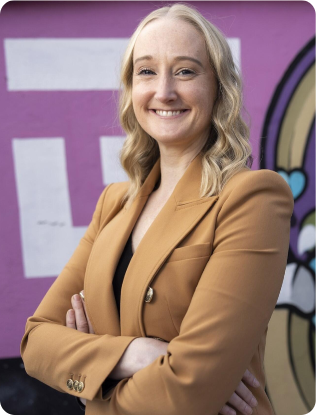A Comprehensive Guide to Getting Started with Hiring a Website Designer
Published on: December 30, 2022
Small businesses are creating websites to increase their visibility, expand their reach, and attract more customers. If you are running a small business, think of hiring a web designer to create a website as a virtual extension of your physical business.
You can use the website to showcase your products and services, offer key business information to current and prospective customers, and craft an online presence.
With the right website, small businesses can reach a larger audience and gain a competitive edge. Moreover, The value of the website-building market worldwide is expected to reach $2.7 billion by 2026. This shows that web developers and designers will be in demand with rising competition in the digital space.
Hiring web designers
Creating a quality website requires collaborative efforts between website developers and designers. Web designers are responsible for the visual design and layout of webpages which contributes to creating the look and feel of a website. Also, they define the content and structure to ensure a top-notch user experience.
Craft a stunning website for your business by hiring web design experts who work with developers to ensure that the code behind the website works correctly and that all the features of the website function properly.
Experienced web designers are also responsible for ensuring that the website is easy to use, visually appealing, and easily navigable. When you hire a web designer, they also ensure optimizing a website for search engines so that it can be easily found by potential customers.
Why Hire A Website Designer?
Hiring dedicated web designers can help unlock your website's full potential with the right typography, font size, colour choice, and more.
Here are the top five reasons to consider hiring a website designer.
Quality Design
Once you have hired website designers, they create a customised website to your specifications that ensure visual consistency across pages. Their specialised skills can help create an aesthetically pleasing design that meets your brand's demands. Hire dedicated web designers who bring in an unmatched experience that help your business stand out from the competition.
Cost savings
Hiring a dedicated web designer is often more cost-effective than getting them on a full-time basis. Because you’d often need their expertise while designing a new website. And once the site is live, they have minimum to no jobs.
Therefore, hire web designers to leverage competitive rates while maintaining experience and dedication. This results in substantial cost savings throughout the project since they charge hourly based on the work they provide.
Professional support
Hire a web design agency to gain access to professional support. They will be available to assist in the design process since it ensures that everything is running smoothly. This can make a huge difference in completing the project right and on time, minus the hurdles that create delays.
Expertise
Small businesses can leverage their web design experience and expertise to create an effective and engaging web presence. Expert designers are well-versed in leveraging modern tools, overcoming project bottlenecks, and creating a user-friendly website that drives conversion.
Flexibility
Hiring a web designer allows you to minimise or increase the project's scope. You can adjust the schedule and ensure project completion on time. Hiring a full-time designer requires consistent payments, but a dedicated web designer will work when needed, and you do not need to pay once the work is done. Payment flexibility also allows you to choose multiple payment options.
Steps to hire web designers
There are certain steps you need to follow to hire web designers. This is to ensure that you choose the one that fits your budget, ensuring reaching goals within the predefined timeline.
This is how you plan to hire dedicated designers for your web development project.
1. Define Web Requirements
Before you start searching, define the criteria and skills your ideal web designers should possess. Think about the type of website you are creating, what technical expertise is necessary, what kind of experience is required, and how much time and money you’re willing to invest. This will help you narrow your search and find the right fit for your business.
When defining project requirements, here are the key aspects to consider—
Prioritizing project needs
Focus on the project goals, timeline, budget, and desired outcome. It is important to be as specific as possible when outlining the requirements to ensure that the web designers understand exactly what is expected. The requirements should include the website's functionality, design elements, content management system, and blending in branding elements for visual consistency.
Timeline
Another important aspect to consider is the timeline of the project. Set realistic expectations for the web designer while considering the project's complexity. Gauge and provide the amount of time needed to complete the project and any other deadlines that may need to be met.
Budgeting
Regarding budgets, clients should include all costs associated with the project, including the cost of hosting, other technologies and the cost of web designers; services. Ensure that you are working within their budget and not overspending on unnecessary items.
Determine project outcome
Finally, it is important to determine the project's desired outcome. Ideally, you should be setting clear expectations for the web designers and should be sure to explain their vision for the project. This will help the web designer understand the project goals and ensure that the project matches your desired outcome.
2. Source potential candidates
Start prioritising the skills and experience you’re looking for when sourcing web design candidates. This step requires leveraging job boards, portals like LinkedIn, and local tech meetups to find potential designers.
Here are some of the quick steps you can take here—
Identify your website needs
Before starting the search for potential web designers, you should clearly understand the type of skills and experience you need for the role. Before outsourcing your website to a web designer, it is important first to identify the needs of your website.
This includes understanding the purpose of your website, your target audience, the content you need to include, and the user experience (UX) you want to provide. Once you clearly understand your website's needs, you can start finding a web designer who can best meet those needs.
Post the job
After identifying the skills and expertise you need from looking for, it's time to start posting job ads. Use portals like Upwork, Fiverr, etc., to hire web designers. And, if you are looking for a team, consider reviewing Clutch to check for businesses that offer dedicated resources.
Investigate their portfolio of work
Check portfolio
A great way to get an idea of the quality of work a potential candidate can produce is by looking at their portfolio of past projects. Ask questions about what inspired them or challenges they faced while working on different projects since it provides insight into how they think and approach tasks. Their portfolio will also show their work quality and see if their skills and expertise can add value.
Interview and assess
Once you've identified potential candidates, it's time to start the interview and assessment process. This is your opportunity to get to know their experience, point of view, design-based thinking, and expectations from the project. Assess a web designer before hiring as it provides you insight into their technical skills and their approach to designing a website.
3. Choose your designer
Once you’ve completed the interview, it’s time to decide. Consider all the factors such as technical skills, experience, cost, timeline requirements, and personality when deciding which candidate is the best fit for the job.
Make sure to thoroughly explain the expectations of the project to them before making any final decisions. Ideally, this step requires —
Research & compare
Now it’s time to start researching and comparing different web developers. Look at their portfolios to get an idea of their work and read testimonials from clients who have worked with them. This will give you an idea of their experience level and professionalism. Check out social media accounts like LinkedIn to see what others have said about them and their awards or accolades.
Ask questions
When researching web designers, don’t be afraid to ask questions! Get clarification on any questions or concerns during your research process to ensure they are the right fit for your project needs. Some good questions include: - What processes do they use when building websites? - How do they handle changes and updates? - Do they offer additional services such as SEO or marketing? - Do they charge extra for additional features? - What is their timeline for completing projects?
Set-up a meeting
After doing some research, set up a meeting with your top contenders to get a better feel for who might be the best fit for your project needs. During this meeting, ask more questions about their experience level and discuss any potential issues that may arise during the development process so that everyone is on the same page before moving forward with anything else. This is also a great time to discuss budget expectations, so there are no surprises down the line.
Make an offer
Once you've identified the right candidate, it's time to make an offer. Stay clear with the job requirements, expectations, and costs involved in completing the project.
Begin with creating a list of potential candidates based on their CVs and interviews. During the interview, ask questions about their technical skills, experience with certain technologies, and previous projects they’ve worked on. Based on this, negotiate the pricing, finalize the contract, and make an offer.
Monitor Progress & Provide Support
Once the project has been kicked off, ensure that your designer and the developer work in tandem to complete the project. Stay involved throughout the process by providing feedback on their progress, answering any questions, and keeping an eye on timelines.
However, it is important to remember that hiring a web designer is only the first step and that monitoring progress and providing support is essential to ensure they are successful. Here is all you should be doing after hiring a web designer.
Regular check-ins
One of the best ways to monitor progress and support a web developer is to have regular check-ins. During these check-ins, the web designer should be asked about their progress on their current project and any difficulties they may have.
Regular check-ins ensure the following by keeping everyone in the loop.
Goal setting
Another important way to monitor progress and support a web designer is to set goals. Goals should be specific, measurable, and set in collaboration with the web developer and other team members.
Provide Resources
Web designers often require access to certain tools and resources to complete their tasks. For instance, Canva, Adobe Photoshop, Figma, etc., help them deliver tasks on time.
Give Feedback
Feedback is essential for any web developer to grow and develop their skills. Constructive criticism should be given promptly and should be specific and actionable.
Where can you find web designers for hire?
If you are looking for a web designer to hire, there are many options available. With the ever-growing demand for web designers, there is a wide range of talent and expertise available locally and globally. Here we will discuss some of the best places to find web designers for hire.
Freelance websites
Freelance websites offer an extensive range of web design services from experienced professionals. Some popular freelance websites include Upwork, Fiverr, PeoplePerHour, Guru, and Freelancer.com. These websites can help you find a professional web designer that meets your needs quickly.
Job boards
Job boards are another great way to find web design professionals. Many job boards have dedicated sections for web design jobs, making it easy to narrow your search to a specific type of specialist.
Popular job boards include Indeed, Monster, and Glassdoor. Additionally, many companies list job postings on their websites, so it’s worth checking out companies in your industry to see if they are looking for web designers.
Social media
Social media is also an effective way to find talented web designers. Platforms like Twitter and LinkedIn are great resources for finding professionals specialising in web design.
You can search for keywords such as “hire web designer” to find relevant results. Additionally, you can post job ads on social media platforms and reach out directly to potential candidates.
Word of mouth
Word of mouth is another great way to find experienced web designers. Ask colleagues, friends, family, and contacts to recommend any good web designers they have worked with. Networking events are a great way to find reliable professionals.
Industry conferences & events
Industry conferences and events are prime networking opportunities, allowing you to meet talented web designers face-to-face and discuss potential projects. If you attend one of these events, bring business cards and stay connected with any interesting contacts, including web designers you meet there.
Local web design companies
Many towns and cities have local web design firms offering services ranging from simple website creation to complex e-commerce development projects. Connect with web companies with a team of web design experts who can help you connect with a local website designer. They can provide valuable advice on reaching your target audience by creating quality designs.
Whom to choose: Domestic vs Overseas hiring of web designer
When searching for a web designer, there are two major options — domestic or overseas experts.
Here are key aspects to consider when choosing for hiring a web designer.
Cost
Domestic web designers can be more expensive than overseas web designers due to geographical location, wages and other costs associated with running a business in the US.
Quality
The quality of work may vary between domestic and overseas web designers. Domestic designers may have more experience and be better at creating a website tailored to the business's particular needs.
Time
Due to time, communication, and cultural differences, it may take longer for overseas web designers to complete the project. On the other hand, domestic web designers will remain available within your time frame and make communication easy.
Security
With domestic web designers, there is more control over the security and privacy of the website and its data. This may differ with overseas web design firms adopting different security standards.
Language
Working with a domestic web designer means that communication is easier, and there is less chance of misunderstandings that arise due to language barriers.’
Which one to choose? Hire a Freelancer vs Hire a website design firm
Now, once you decide whether to hire an overseas domestic web designer, the next choice is to go for a freelancer or a web design company.
Both have advantages and disadvantages, so it's important to consider the type of project you are undertaking, your budget, and the work quality required.
Hiring a Freelancer
When it comes to hiring a freelancer for web design, there are several advantages.
Cost: Hiring a freelancer is often more affordable than hiring a web design firm. This is because they usually charge lower rates and don't have the overhead costs associated with a larger company.
More flexibility: Freelancers are more flexible regarding their availability and working hours, making it easier to find someone who can work on your project when you need them most.
But, there are some disadvantages as well.
Lack of quality control: Hiring a freelance web designer can lessen the control over the quality of work. You may end up with poor-quality work if you don't take the time to vet your candidate thoroughly.
Expectations mismatch: Additionally, as freelancers generally don't have access to the same resources as a web design firm, they may not be able to meet your exact specifications or provide the level of customer service that a professional web design firm can offer.
Hiring a Web Design Firm
Let us now explore some of the boons and banes of hiring a web design firm to access quality experts.
Better experience: Web design firms typically have a team of experienced and qualified designers who can provide high-quality work. This means you can have confidence in the results, knowing that the team has the necessary skills and experience to deliver what you need.
Work assurance: Additionally, many web design firms offer guarantees and contracts that ensure you will get the results you expect within the given time. This means you will have timely work deliverables that match your requirements.
Here are some of the key disadvantages of hiring a web design firm.
Cost: The downside of hiring a web design firm is usually cost. Professional web design firms usually charge higher rates than freelancers, so you may need to factor this into your budgeting.
Project time: Additionally, it may take longer for a firm to complete your project due to their process, procedures,
Ultimately, the best option will depend on your individual needs and requirements. If cost is your main concern, hiring a freelancer might be the way to go. However, go with a web design firm if you want high-quality results and better UX.
Bottomline
The aspects mentioned above should be considered when hiring web designers in 2023. Here, we have covered some key steps, things to consider, and quick comparisons of different types of hiring, along with pros and cons.
If you are looking for a dedicated web designer in 2023, consider consulting Square Root in Ireland. Our quality web designers can work on projects from scratch or blend into your existing web development team.
Discuss your web project with us, and we will help you identify the required key skills, experience, and expertise. Based on the same, we will provide web designers to get the work done.
Sarah is a chief CMO at Square Root Solutions. As a software developer, she excels in developing innovative and user-centric software solutions. With a strong proficiency in multiple programming languages, she specializes in creating robust and scalable applications. Besides her passion for software development, she has a keen interest in culinary adventures, enjoying a variety of unique and interesting foods.
What client speaks about us!
Don't just take our word for it - hear from our clients about their experience working with us and
why they trust us to deliver exceptional results.











